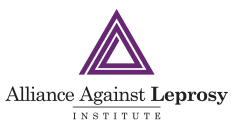DOCHansen

Institute launches unprecedented platform that connects general practitioners with Hansen's Disease specialists in Mato Grosso and Paraná
DOCHansen will facilitate patient care and technical assistance

The Alliance Against Leprosy (AAL) has launched an unprecedented virtual platform to help doctors manage complex Hansen’s Disease cases. Named DOCHansen and funded by the Malta International Order Against Leprosy (CIOMAL), the tool was born out of the AAL’s Technical Cooperation with the Mato Grosso State Health Secretariat. It will run on a pilot basis for the next six months, bridging the gap between doctors who have questions about the disease and experienced Brazilian Hansenologists.
“The conception of this project was the result of our work in Mato Grosso since 2019, training more than 800 health professionals. We were able to observe the ephemeral nature of the impact of the trainings. The doctors are isolated and have many doubts. Without tutoring, knowledge is lost. Combined with the high turnover of doctors in health units, we believe that teleconsulting could have a major impact on the quality of patient care,” says Dr. Giovanni. Laila de Laguiche, hansenologist and president of the Alliance Against Leprosy.
According to the latest survey carried out by the World Health Organization (WHO), Brazil is the second country in the world with the highest number of new cases of Hansen’s Disease (28,660), only behind India (114,400) in 2021. Although the incidence of cases is high in Brazil, there is a shortage of specialists in the area. According to physician and DOCHansen ambassador Dr. Francisco Almeida, “the participants in the training sessions had many doubts about the disease, its diagnosis and evolution, as well as a growing number of exchanges of sensitive information, including images of patients, in informal WhatsApp groups, which are procedures that violate the precepts of medical ethics.”
In this pilot phase, DOCHansen will operate in nine cities in Mato Grosso and one city in Paraná, all of which were previously chosen by the State Health Department in Mato Grosso, and in Paraná, by the 22nd State Health Department. Ivaiporã Health Region, based on the number of Hansen’s Disease cases. In Mato Grosso, they are: Barra do Garças, Guarantã do Norte, Lucas do Rio Verde, Juara, São José do Rio Claro, Pontal do Araguaia, Alta Floresta, Tangará da Serra, and Cuiabá. In the Paraná region, it will operate in Ivaiporã, which takes care of the medical needs of the surrounding municipalities. These two points of action of DOCHansen in Brazil could serve as a measure of comparison between the needs of hyperendemic locations (MT) and those of low endemicity (PR), making it easier to direct future actions of the program. After the test phase, the Institute plans to expand throughout Brazil.
How will it work?
Doctors who have been invited to take part in DOCHansen and have registered on the Medicina Direta platform, when they see an individual with suspected Hansen’s Disease or who is undergoing treatment, or who has been discharged but remains under follow-up, can access the DOCHansen platform, enter their question by filling in the forms and, within 72 hours, they will receive a response from the consulting doctor. All contact will be made via the platform, avoiding any leak of information in social groups without the protection of sensitive data, which is a requirement of the Federal Council of Medicine (CFM).
The professionals who use the platform will be located mainly in the Basic Health Units (UBS). The start of activities on the Platform will be in line with the CFM Resolutions. The technological tool is approved by the Brazilian Society of Health Informatics (SBIS) and by the Class Council itself. DOCHansen’s management team believes that, depending on demand, more consultants will be able to collaborate with the initiative. The requirement will be proof of working in the specialty for at least six years or holding the title of specialist in Hansenology for at least three years. The desire of the president of the Alliance Against Leprosy, Dr. Laila de Laguiche, is for the consultant doctors, who are specialists in Hansen’s Disease, to be better valued in the job market and to be paid for their work at DOCHansen.
Doctors specializing in Hansen's Disease are essential for diagnosis
According to Dr. Francisco Almeida, a consultant and ambassador for DOCHansen, who is also a professor working on the medicine degree, says that “teaching about Hansen’s Disease is disappearing from the curriculum, which means that new professionals have no knowledge of the disease. That’s why the DOCHansen initiative is so important.”
“The gateway for most newly qualified doctors and for SUS patients remains Primary Health Care and/or emergency rooms. Therefore, it is essential that they know about the condition so that patients can be managed properly. The gap in knowledge about the complexity of the disease is the main reason for the drop in the detection coefficient observed over the years,” says the DOCHansen ambassador.
Still thinking about the shortage and need for specialist doctors, the initiative, which has the best expectations for its operation and help, is a tool with some limitations. “There is still no laboratory test available to replace an accurate physical examination in all clinical forms of Hansen’s Disease, and clinical experience is the only tool that offers the greatest degree of certainty. In addition, advanced cases of the disease are sometimes highly complex, so the specialist’s eye is really needed for a better outcome, minimizing the occurrence of the irreversible disabilities that can result from Hansen’s Disease,” explains Dr. Francisco.
